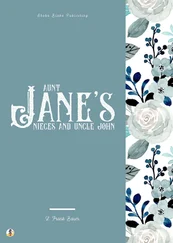Ouida - A House-Party, Don Gesualdo, and A Rainy June
Здесь есть возможность читать онлайн «Ouida - A House-Party, Don Gesualdo, and A Rainy June» — ознакомительный отрывок электронной книги совершенно бесплатно, а после прочтения отрывка купить полную версию. В некоторых случаях можно слушать аудио, скачать через торрент в формате fb2 и присутствует краткое содержание. Жанр: foreign_prose, literature_19, foreign_antique, на английском языке. Описание произведения, (предисловие) а так же отзывы посетителей доступны на портале библиотеки ЛибКат.
- Название:A House-Party, Don Gesualdo, and A Rainy June
- Автор:
- Жанр:
- Год:неизвестен
- ISBN:нет данных
- Рейтинг книги:4 / 5. Голосов: 1
-
Избранное:Добавить в избранное
- Отзывы:
-
Ваша оценка:
- 80
- 1
- 2
- 3
- 4
- 5
A House-Party, Don Gesualdo, and A Rainy June: краткое содержание, описание и аннотация
Предлагаем к чтению аннотацию, описание, краткое содержание или предисловие (зависит от того, что написал сам автор книги «A House-Party, Don Gesualdo, and A Rainy June»). Если вы не нашли необходимую информацию о книге — напишите в комментариях, мы постараемся отыскать её.
A House-Party, Don Gesualdo, and A Rainy June — читать онлайн ознакомительный отрывок
Ниже представлен текст книги, разбитый по страницам. Система сохранения места последней прочитанной страницы, позволяет с удобством читать онлайн бесплатно книгу «A House-Party, Don Gesualdo, and A Rainy June», без необходимости каждый раз заново искать на чём Вы остановились. Поставьте закладку, и сможете в любой момент перейти на страницу, на которой закончили чтение.
Интервал:
Закладка:
His reasons for admiring her are not those of the Babe and his sisters, but he admires her almost as much as they. Brandolin, who in his remote travels has seen a great deal of that simple nature which is so much lauded by many people, has a great appreciation of well-dressed women, and the Madame Sabaroff is admirably dressed, from her long loose cream-colored gloves to her bronze shoes with their miniature diamond clasps.
"Didn't I tell you?" whispers the Babe, climbing up behind Brandolin.
"Yes, you did," returned Brandolin, "and you were quite right; but it is abominably bad manners to whisper, my dear Cecil."
The Babe subsides into silence with hot cheeks when anybody calls him Cecil he is conscious that he has committed some flagrant offence.
"Those brats are always bothering you, princess," says their father.
"They are very kind to me," replies Xenia Sabaroff, in English which has absolutely no foreign accent. "They make me feel at home! What a charming place this is! I like it better than your castle—what is its name?—where I had the pleasure to visit you at Easter."
"Orme. Oh, that's beastly,—a regular barn: obliged to go there just for show, you know."
"Orme was built by Inigo Jones, and the ingratitude to fortune of its owner is a constant temptation to Providence to deal in thunder-bolts, or have matches left about by housemaids," says Brandolin.
"I think Lord Usk has not a contented mind," says Madame Sabaroff, amused.
"Contented! By Jove, who should be, when England's going to the dogs as fast as she can?"
"In every period of your history," says the princess, "your country is always described as going headlong to ruin; and yet she has not gone there yet, and she has not done ill."
"'Our constitution is established on a mere equipoise, with dark precipices and deep waters all around it.' So said Burke," replies Brandolin. "At the present moment everybody has forgotten the delicacy of this nice equipoise, and one day or other it will lose its balance and topple over into the deep waters, and be engulfed. Myself, I confess I do not think that time is very distant."
"I hope it is; I am very much attached to England," replies the Princess Xenia, gravely, "and to naughty English boys," she adds, passing her hand over the shining locks of the Babe.
"She must be in love with an Englishman," thinks Brandolin, with the one-sided construction which a man is always ready to place on the words of a woman. "Must we go in-doors?" he asks, regretfully, as she is moving towards the house. "It is so pleasant in these quaint green arbors. To be under a roof on such a summer afternoon as this, is to fly in the face of a merciful Creator with greater ingratitude than Usk's ingratitude to Inigo Jones."
"But I have scarcely seen my hostess," says Madame Sabaroff; nevertheless, she resigns herself to a seat in a yew-tree cut like a helmet.
There are all manner of delightful old-fashioned flowers, such flowers as Disraeli gave to the garden of Corisande, growing near in groups encircled by clipped box-edging.
Those disciples of Pallas Athene who render the happy lives of the Surrenden children occasionally a burden to them seize at that moment on their prey and bear them off to the school-room. The Babe goes to his doom sullenly; he would be tearful, only that were too unmanly.
"Why do you let those innocents be tortured, George?" asks Brandolin.
"Books should, like business, entertain the day,"
replies Usk: "so you said, at least, just now. Their governesses are of the same opinion."
"That is not the way to make them love books, to shut them up against their wills on a summer afternoon."
"How will you educate your children when you have 'em, then?"
"He always gets out of any impersonal argument by putting some personal question," complains Brandolin to Madame Sabaroff. "It is a common device, but always an unworthy one. Because a system is very bad, it does not follow that I alone of all men must be prepared with a better one. I think if I had children I would not have them taught in that way at all. I should get the wisest old man I could find, a Samuel Johnson touched with a John Ruskin, and should tell him to make learning delightful to them, and associated, as far as our detestable climate would allow, with open-air studies in cowslip meadows and under hawthorn hedges. If I had only read dear Horace at school, should I ever have loved him as I do? No; my old tutor taught me to feel all the delight and the sweet savor of him, roaming in the oak woods of my own old place."
"I am devoutly thankful," says his host, "that Dorothy among her caprices had never had the fancy you have, for a Dr. Johnson doublé with a Ruskin, to correct my quotations, abuse my architecture, and make prigs of the children."
"Prigs!" exclaims Brandolin. "Prigs! When did ever real scholarship and love of nature make anything approaching to a prig? Science and class-rooms make prigs, not Latin verse and cowslip meadows."
"That is true, I think," says the Princess Xenia, with her serious smile.
"If they are beginning to agree with one another I shall be de trop ," thinks Usk, who is very good-natured to his guests, and popular enough with women not to be resigned to play what is vulgarly termed "second fiddle" (though why an expression borrowed from the orchestra should be vulgar it were hard to say). So he goes a few paces off to speak to a gardener, and by degrees edges away towards the house, leaving Brandolin and Madame Sabaroff to themselves in the green yew-helmet arbor.
Brandolin is in love with his subject, and does not abandon it.
"It is absurd," he continues, "the way in which children are made to loathe all scholarship by its association with their own pains and subjection. A child is made as a punishment to learn by rote fifty lines of Virgil. Good heavens! It ought rather to be as a reward that he should be allowed to open Virgil! To walk in all those delicious paths of thought should be the highest pleasure that he could be brought to know. To listen to the music of the poets should be at once his privilege and his recompense. To be deprived of books should be, on the contrary, his cruellest chastisement!"
"He would be a very exceptional child, surely," says Madame Sabaroff.
"I was not an exceptional child," he answers, "but that is how I was brought up and how I felt."
"You had an exceptional training, then?"
"It ought not to be exceptional: that is just the mischief. Up to the time I was seventeen, I was brought up at my own place (by my father's directions, in his will) by a most true and reverent scholar, whom I loved as Burke loved Shackleton. He died, God rest his soul, but the good he left behind him lives after him: whatever grains of sense I have shown, and whatever follies I have avoided, both what I am and what I am not, are due to him, and it is to him that I owe the love of study which has been the greatest consolation and the purest pleasure of my life. That is why I pity so profoundly those poor Rochefort children, and the tens of thousands like them, who are being educated by the commonplace, flavorless, cramming system which people call education. It may be education; it is not culture. What will the Babe always associate with his Latin themes? Four walls, hated books, inky, aching fingers, and a headache. Whereas I never look at a Latin line in a newspaper, be it one ever so hackneyed, without pleasure, as at the face of an old friend, and whenever I repeat to myself the words, I always smell the cowslips and the lilac and the hawthorn of the spring mornings when I was a boy."
Xenia Sabaroff looked at him with some little wonder and more approval.
"My dear lord," she says seriously, "I think in your enthusiasm you forget one thing, that there is ground on which good seed falls and brings forth flowers and fruit, and there is other ground on which the same seed, be it strewn every so thickly, lies always barren. Without underrating the influences of your tutor, I must believe that had you been educated at an English public school, or even in a French Lycée, you would still have become a scholar, still have loved your books."
Читать дальшеИнтервал:
Закладка:
Похожие книги на «A House-Party, Don Gesualdo, and A Rainy June»
Представляем Вашему вниманию похожие книги на «A House-Party, Don Gesualdo, and A Rainy June» списком для выбора. Мы отобрали схожую по названию и смыслу литературу в надежде предоставить читателям больше вариантов отыскать новые, интересные, ещё непрочитанные произведения.
Обсуждение, отзывы о книге «A House-Party, Don Gesualdo, and A Rainy June» и просто собственные мнения читателей. Оставьте ваши комментарии, напишите, что Вы думаете о произведении, его смысле или главных героях. Укажите что конкретно понравилось, а что нет, и почему Вы так считаете.












